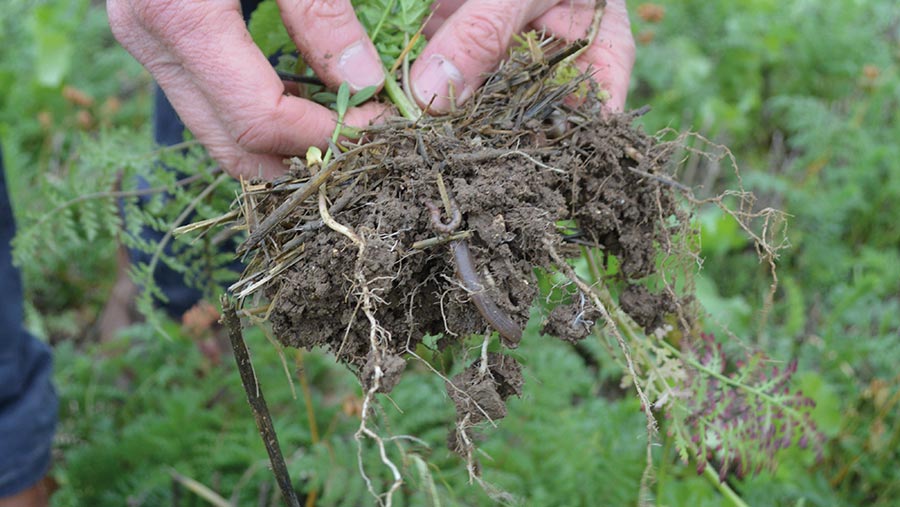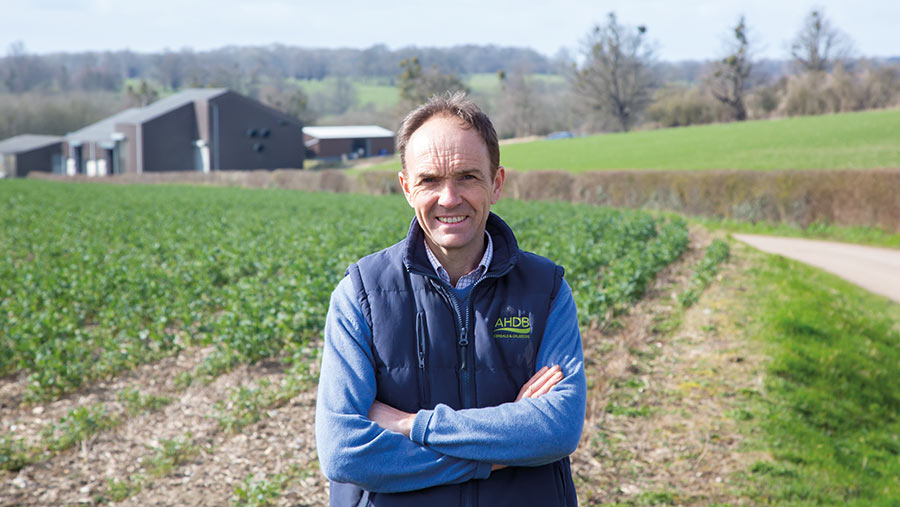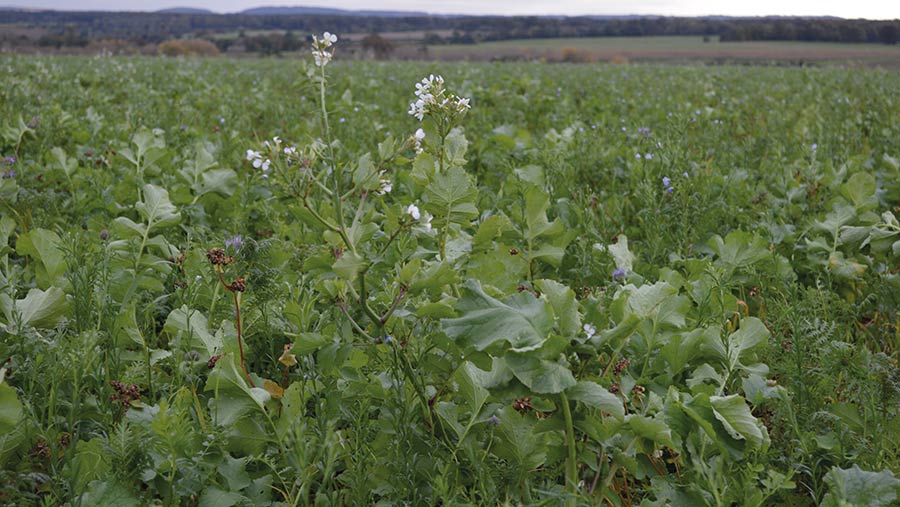Soil health improves after switch to new drills
 © MAG/David Jones
© MAG/David Jones Soil fertility is improving on one Berkshire estate after switching to low-disturbance drilling and cover crops to achieve a more sustainable farming system.
Addressing soil health was deemed necessary after years of following a high-input high-output arable system and a growing blackgrass weed problem.
Farm manager Rob Waterston says this focus on the soil prompted the purchase of two new drills, while cover – and also catch – crops have spread across the farm.
“The aim was to grow healthy crops and reduce the reliance on artificial fertilisers and fungicides,” he tells Farmers Weekly.
See also: How two Scottish farms plan to become more sustainable
The switch comes at a time of reducing area-based direct payments, escalating input prices, especially nitrogen fertiliser, and the need to cut farming’s carbon footprint.

Rob Waterston © AHDB
Welford Estate Partnership, Newbury, Berkshire
- Farms 1,072ha of land
- 640ha of combinable crops, including winter wheat, spring barley, spring oats and winter beans
- The rest is permanent pasture/parkland and contract farming agreements
More resilient
Soils are becoming more resilient and workable, with higher worm numbers, improved organic matters of 4-6% and only a small dip in output, with average winter wheat yields just above 10t/ha.
The need to address soil health prompted the change to the farm’s cultivation and drilling strategy, while the blackgrass problem forced a move to more spring cropping, with a 50-50 split between autumn and spring crops.
The Welford Estate Partnership farms 1,072ha of land straddling the M4 motorway, just north-west of Newbury, across a range of soil types, while the estate is also home to the TV programme The Great British Bake Off.
Mr Waterston says the plough was abandoned in 2012 and intensive non-inversion cultivation undertaken across a range of soil types – from chalky land, large areas of gravel to heavier medium sandy clay loams – to drill 640ha of combinable crops.

© MAG/David Jones
New drills
The first change came with the purchase of a Mzuri 6m strip-till drill in 2018 to achieve minimum soil disturbance while sweeping through surface chopped straw.
He says the Mzuri acts as a soil repair tool, giving low-disturbance drilling on soils that often need a tine through them to improve their structure on a journey towards direct-drilling.
So, in the following year, a Weaving 6m disc direct drill was purchased with the aim of drilling all the spring crops, as well as winter wheat when the soil was in a good condition following winter beans.
With better weather this autumn than the previous two, conditions were good enough to drill 70% of the 250ha of Gleam, Graham and Extase winter wheat varieties with the direct drill.
Cover crops
The Mzuri is used for wheat drilling when conditions are a little more sticky, and it also “follows the combine” in the summer, drilling 400ha of cover crops. Although an expensive outlay, the two drills are now the main cultivators on the estate.
Cover crop mixes including phacelia, linseed, vetch, crimson clover, buckwheat and radish are used on the farm at a seed cost of £30/ha. They are usually grazed by sheep and then sprayed off with glyphosate.
When direct-drilling spring barley or oats after the covers, Mr Waterston says they have managed to cut out a pre-emergence herbicide, as there is less soil disturbance to bring up weed seed, so they can rely on just a post-emergence herbicide.
He is also using a catch crop mix of mustard, vetch and small-leaved clover between winter wheat and winter beans, and says the catch crop provides a bit of early nitrogen to help the beans establish.
Rob Waterston was speaking as the host of an AHDB Newbury Monitor Farm meeting earlier this month.
